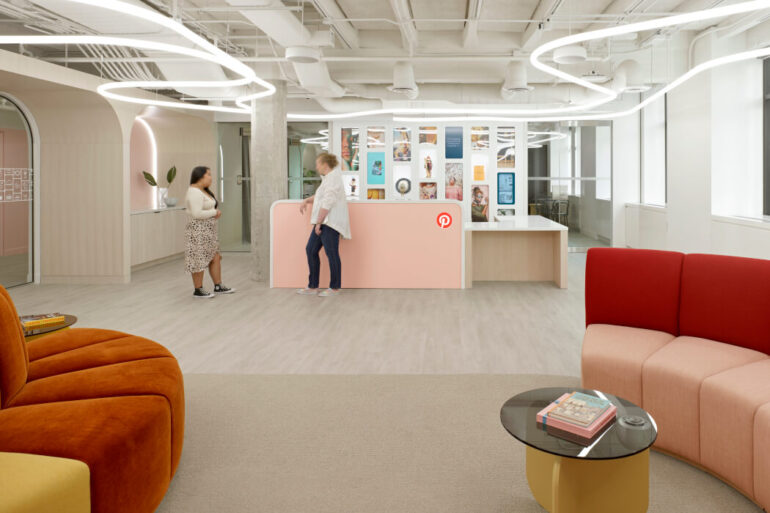Pinterest is looking to expand its business in Canada and capitalize on the country’s artificial intelligence (AI) and machine learning (ML) talent as it sets out on a strategic plan to make the platform more of a shopping destination, said chief technology officer Jeremy King.
“You’ve got such great machine learning talent in Toronto,” King said in an interview with BetaKit. “I can’t express enough that every single team has machine learning engineers, so we need as many machine learning engineers as you can get.”
“We’ve been continually impressed by the calibre of engineering talent in the market that we want to continue to invest in the region.”
Jeremy King
Pinterest CTO
The San-Francisco-based company is hiring 40 engineering roles to add to its existing roster of 80 at its Toronto office—one of its key engineering hubs, King said—and aims to fill the positions by the end of the year.
King said Canadian post-secondary institutions, such as the University of Waterloo, University of Toronto, and McGill University pump out “some of the best machine learning talent in the world,” and leveraging that talent to build out product features will play a key role in driving the business’ goals of higher profitability.
“We’ve been continually impressed by the calibre of engineering talent in the market that we want to continue to invest in the region,” the CTO said.
Canada and the United States drove the most revenues for the company in its 2022 fiscal year, bringing in sales of $2.3 billion USD, but about 80 percent of users on the platform come from outside the US, generating approximately 20 percent of sales. That’s a segment of Pinterest’s users that chief executive William J. Ready described to analysts during the company’s last quarterly earnings as “the most under-monetized.” It’s also where he sees “meaningful opportunity” to increase average revenues per user.
“Because more than half of Pinterest users see us as a place to shop, our vision is to make everything people see on Pinterest shoppable,” King said.
The Toronto office, when it first opened in 2019 (the same year Pinterest went public), focused on shopping features for the platform, but has since grown to work on advertisers’ tools, shipping products for the platform globally, and engineers work on projects that help retailers load their own product to the platform.
“Shopping is a key focus for us this year and we are continuing to make it easier for merchants and brands to feature their products on Pinterest and easier for users to buy,” King said, adding that engineers in Toronto will continue work on machine learning products “that are at the heart of what makes Pinterest.”


